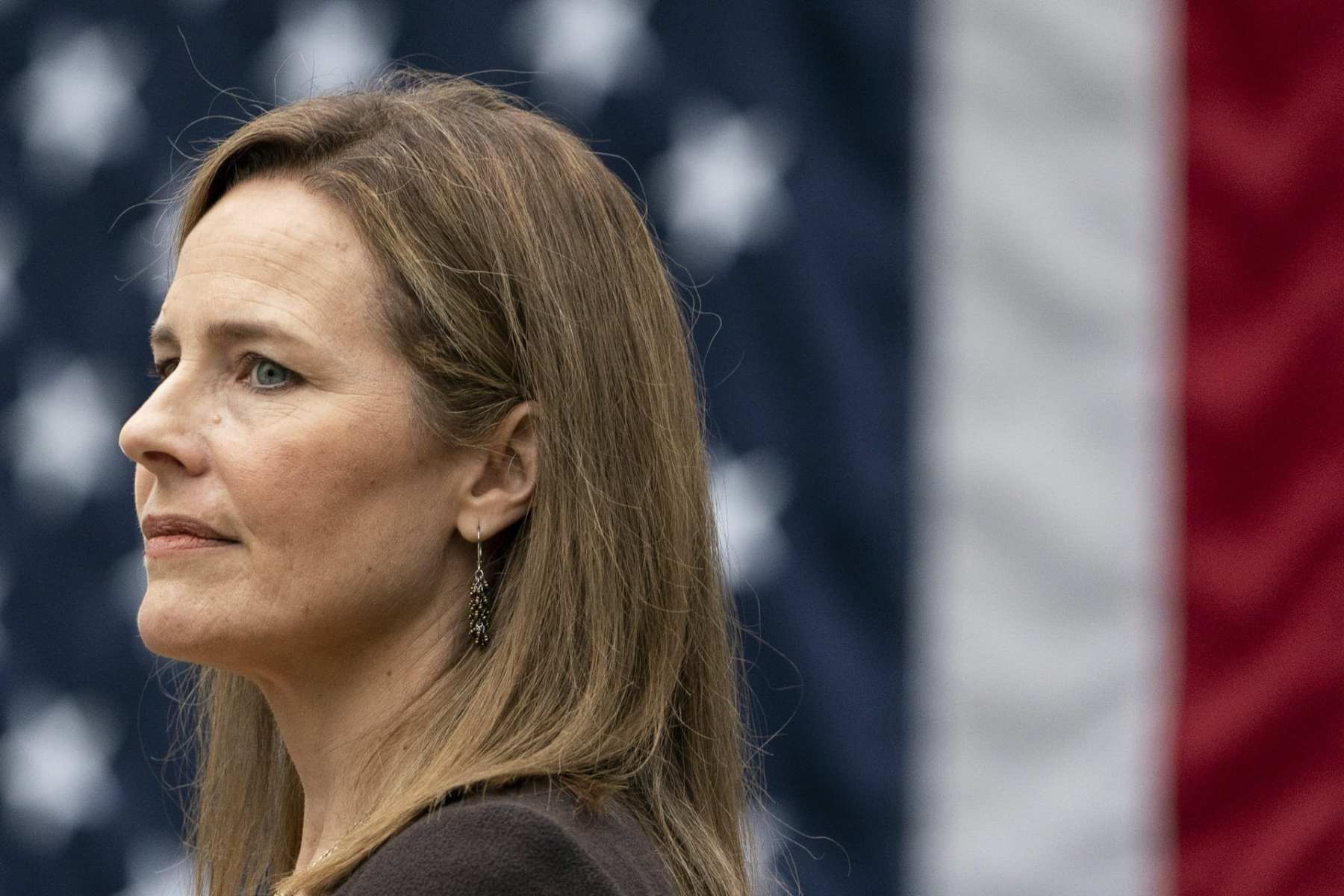In 2003, the same year that the Supreme Court struck down sodomy laws nationwide, a book called “The Homosexual Agenda: Exposing the Principal Threat to Religious Freedom Today” hit the market.
The text warned against a growing acceptance of gay people. It claimed that gay pedophiles were indoctrinating children, and that LGBTQ+ political power would herald the end of religious freedom. It quoted Chuck Donavan, a prominent anti-gay leader, who draws a parallel between the challenges facing Christians then with those facing Nazi Germany during WWII.
And it’s not a relic; Walmart still sells it.
The ideas in “The Homosexual Agenda” form the foundation of the Alliance Defending Freedom (ADF), the most powerful far-right legal organization in the nation. Alan Sears, one of the book’s authors, was ADF’s first president.
ADF has been at the forefront of the fight against legal cases for LGBTQ+ equality in the United States. The organization argued against marriage equality, employment discrimination protections and transgender bathroom access. It took the Masterpiece Cakeshop case, which involved a baker who refused to serve a same-sex couple over religious objections, to the Supreme Court.
And now, Supreme Court nominee Amy Coney Barrett is being asked to answer for her ties to the organization. Barrett has done five paid speaking engagements for the group since 2011. Since her nomination to the 7th Circuit Court of Appeals in 2017, she has faced fierce criticism for her involvement with ADF. Twenty-seven LGBTQ+ organizations strenuously opposed her nomination three years ago, in part due to her association with the organization, which the Southern Poverty Law Center has labeled a hate group.
Zack Ford, former LGBTQ editor for progressive news outlet ThinkProgress, says the media has largely mischaracterized ADF as a conservative Christian legal organization because newsrooms take their public statements at face value. But he believes ADF is an extremist hate group.
“If you look at the rhetoric that they use, particularly around trans people, but also around non-straight people, you really see a desire to frame the world around them not existing,” Ford told The 19th.
Founded in 1994 as the Alliance Defense Fund, ADF billed itself as the antidote to the American Civil Liberties Union. As the ACLU battled cases to defend liberties enshrined in the U.S. Constitution, ADF crusaded for religious liberty, battling to keep the words “under God” in the Pledge of Allegiance in public schools and fighting government institutions increasingly celebrating “the holidays” rather than Christmas and Hanukkah, specifically. These campaigns put the group at odds with a core American principle — the separation of church and state.
In 2003, the group filed an amicus brief in Lawrence v. Texas, the Supreme Court case that decriminalized homosexuality across the nation. ADF strongly opposed the end of sodomy laws. Nearly all of the document — 25 pages — is dedicated to graphic descriptions of gay sex and arguments that gay men and lesbians spread HIV and other STDs.
But in that case, ADF didn’t make its argument based on religious freedom. That’s not uncommon says Ryan Thoreson, a researcher with the LGBT rights program at Human Rights Watch.
“We’ve seen the Alliance Defending Freedom opposing laws to allow legal gender recognition for trans people in France, in Bulgaria, Russia and in Macedonia,” he said. “You know, there aren’t freedom of religion or freedom of speech concerns. There really is just an effort to restrict the rights of transgender people internationally.”
But though its more than $50 million budget and expansive network of attorneys have made it a powerhouse, the popularity of ADF’s mission is quickly waning. A recent poll by the Human Rights Campaign found that even among Trump voters, support for LGBTQ+ equality is widespread.
LGBTQ+ advocates say that ADF and other similar groups “exported hate” after their anti-LGBTQ+ agendas started failing in the United States. ADF launched its international work in 2011.
In 2015, ADF argued in favor of the forced sterilization of transgender people before the European Court of Human Rights. In Jamaica, the group battled to keep anti-sodomy laws on the books, despite human rights reports that LGBTQ+ people in the country faced extraordinary violence and even death. The group did the same in Belize and India.
“The work that ADF has done abroad really closely mirrors its work in the United States,” Thoreson said. “We see interventions designed to restrict legal gender recognition, to restrict comprehensive sexuality education, to elevate the freedom of religion over equality and non-discrimination laws and other objectives that are really consistent with this.”
If you look at the rhetoric that they use, particularly around trans people… you really see a desire to frame the world around them not existing.
Barrett has tried to distance herself from the group. During her 2017 appeals court confirmation process, she told Sen. Al Franken she wasn’t aware that in accepting an invitation to speak for ADF’s Blackstone Legal Fellowship program, she was working with the group.
“By the time I spoke, I was aware,” she conceded when pressed.
During her Supreme Court confirmation proceedings on Tuesday, Sen. Patrick Leahy asked Barrett if she knew that ADF had worked for decades to re-criminalize homosexuality.
“I am not aware of those efforts, no,” she said.
Michael Farris, the CEO of ADF, attended Barrett’s White House Rose Garden announcement event earlier this month. ADF has attended other White House meetings held by the Trump administration, the first administration to invite ADF or any labeled hate group to the White House.
Neither ADF nor Barrett responded to a request to comment for this article.
Regardless of Barrett’s association with ADF, what alarms many LGBTQ+ advocates are her own statements.
On Tuesday, Barrett referred to sexual orientation as a “preference.” That word set off alarm bells across the legal community as many worried that Barrett might rule that LGBTQ+ identity was a choice and therefore could not be protected under the law.
Asked repeatedly to clarify, she said the word was not intended to offend.
“I really in using that word did not mean to imply that I think that, you know, that it’s a matter of, not a matter of, that it’s not an immutable characteristic or that it’s solely a matter of preference. I honestly did not mean any offense or to make any statement by that,” she told Sen. Cory Booker.
As recently as 2016, Barrett deliberately misgendered transgender women, using language that mirrors anti-trans activists who deny transgender people are real.
“People will feel passionately on either side about whether physiological males who identify as females should be permitted in bathrooms, especially where there are young girls present,” Barrett said, adding it would “strain” the text of Title IX to permit transgender people to use public restrooms in accordance with their genders.
Like Barrett, ADF has long presented transgender rights as an opposition to women’s rights. The group is currently working to bar transgender student athletes from competing in sports.
Gillian Branstetter, media relations manager at the National Women’s Law Center, says that juxtaposition is not only inaccurate, it’s a losing game.
“They’re hoping that any given audience will buy into that framework and ignore the ways that empowering cisgender heterosexual males is, of course, going to alienate women, be they cis or be they trans,” Branstetter said. “When you define people’s function in society down to their biology, you use the same tools that a patriarchal system has used to oppress women for much of American history.”





